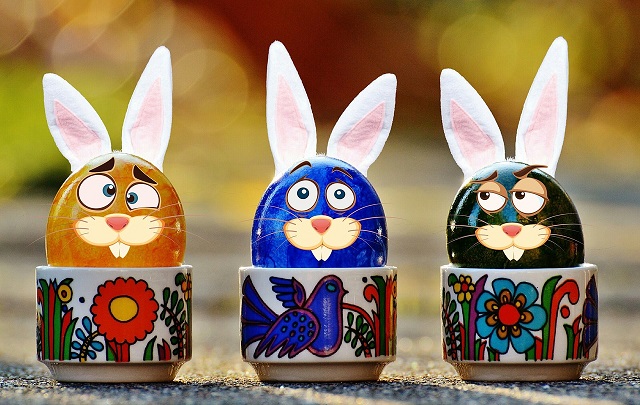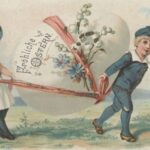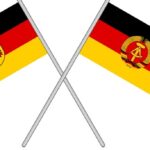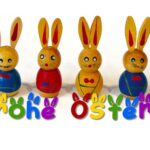
Easter in Germany is not just about church services and family gatherings—it’s also a time for vibrant Easter markets (Ostermärkte)! Just like Germany’s famous Christmas markets, these springtime fairs bring towns to life with colorful decorations, handcrafted gifts, traditional Easter foods, and festive entertainment.
From Nuremberg’s historic Easter fair to Berlin’s lively spring celebrations, Germany is home to some of the most enchanting Easter markets in Europe. But what makes these markets so special? And where can you experience the best ones?
Let’s explore Germany’s best Easter markets, their traditions, and why they are a must-visit for anyone wanting to experience the magic of German Easter.
The Tradition of German Easter Markets (Ostermärkte)
Easter markets have been a part of German culture for centuries, blending Christian Easter customs with pre-Christian spring festivals.
What to Expect at a German Easter Market
- Handcrafted Easter Decorations – Beautifully painted eggs, Easter bunnies, and spring wreaths.
- Traditional German Easter Foods – Osterlamm (Easter lamb cake), pretzels, and springtime delicacies.
- Spring Flowers and Fresh Produce – Markets are filled with tulips, daffodils, and fresh herbs.
- Folk Music and Live Performances – Local bands and performers entertain crowds.
- Children’s Activities – Easter egg painting, puppet shows, and even visits from the Easter Bunny (Osterhase).
Read more: The Fascinating Story Behind the German Easter Bunny (Osterhase)
Where to Find the Best German Easter Markets
1. Nuremberg Easter Market (Ostermarkt Nürnberg)
Location: Hauptmarkt, Nuremberg
When: Mid-March to Easter Monday
Nuremberg is home to one of Germany’s oldest and largest Easter markets, attracting thousands of visitors each year.
- Over 80 stalls selling Easter crafts, souvenirs, and food.
- Live demonstrations of egg painting and traditional wood carving.
- A must-visit for anyone wanting an authentic Bavarian Easter experience.
2. Berlin Easter Market and Spring Festival (Ostermarkt & Frühlingsfest)
Location: Alexanderplatz & Kurfürstendamm
When: Late March to Easter Monday
Germany’s capital goes all out for Easter, offering multiple markets and spring festivals, including:
- Easter market at Alexanderplatz – Featuring handmade gifts, live music, and food stalls.
- Spring Festival at Kurfürstendamm – Home to carnival rides, open-air performances, and street food.
- The Berlin Easter Egg Hunt in Tiergarten, one of the biggest in Germany.
Read more: Easter Egg Hunts in Germany: A Family Tradition with a Long History
3. Munich’s Viktualienmarkt Easter Festival
Location: Viktualienmarkt, Munich
When: Mid-March to Easter Sunday
Munich’s Viktualienmarkt transforms into an Easter wonderland, with:
- Traditional Bavarian Easter treats, like pretzels and Osterzopf (Easter braid).
- A giant Easter egg display featuring hand-painted eggs from around Bavaria.
- Easter concerts with live folk music and dance performances.
4. Dresden’s Augustusmarkt Easter Fair
Location: Augustusmarkt, Dresden
When: Late March to Easter Monday
Dresden’s Easter fair combines traditional markets with a modern touch, offering:
- A spectacular light display at night.
- Saxon Easter delicacies, including Dresdner Stollen.
- Beautifully crafted Sorbian Easter eggs, painted in intricate wax-resist designs.
Read more: Decorating Easter Eggs in Germany: The Art of Sorbian and Hand-Painted Eggs
5. Stuttgart’s Spring Fair and Easter Market
Location: Schlossplatz, Stuttgart
When: Mid-March to Easter Monday
Stuttgart’s Spring Fair (Frühlingsfest) is one of Germany’s biggest Easter celebrations, featuring:
- Over 200 market stalls selling Easter crafts, sweets, and flowers.
- A massive fairground with carnival rides and entertainment.
- Special Easter performances, including puppet theaters and folk dances.
Unique Easter Market Traditions in Germany
1. The Easter Bonfires (Osterfeuer) Near Markets
Many Northern German towns combine Easter markets with Osterfeuer (Easter bonfires), lighting large fires on Holy Saturday. These bonfires are a tradition dating back to pagan spring festivals.
Read more: The Symbolism of Easter Fires (Osterfeuer) in Germany
2. The Osterbrunnen (Easter Fountains) in Bavaria
Many towns in Bavaria and Franconia decorate public fountains with garlands and thousands of hand-painted eggs. Some of the best Osterbrunnen can be found in:
- Bamberg
- Rothenburg ob der Tauber
- Bieberbach (home to the world’s largest Easter fountain)
Read more: Osterbrunnen: The Stunning Easter Fountains of Bavaria and Franconia
3. The Traditional Gründonnerstag Green Food Festival
In some Easter markets, particularly in Frankfurt and Saxony, you can find special green dishes for Maundy Thursday (Gründonnerstag), including:
- Seven-herb green soup (Frankfurter Grüne Soße).
- Spinach pancakes and fresh herb salads.
Read more: Why Do Germans Eat Green Food on Maundy Thursday?
Germany’s Easter markets (Ostermärkte) are some of the most festive spring celebrations in Europe, offering a mix of religious customs, folk traditions, and family-friendly activities.
Whether you’re exploring Bavaria’s Easter fountains, joining an Easter bonfire in Northern Germany, or enjoying Easter treats at Berlin’s markets, there’s something for everyone.
Want to Learn More About German Easter?







